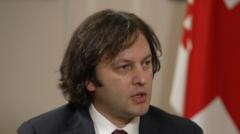Professor Elvis Ameyaw, Dean of the School of Pharmacy and Pharmaceutical Science at the University of Cape Coast (UCC) has emphasised the urgent need to make palliative care an integral part of Ghana’s healthcare system, stating that “palliative care is not about adding days to life, but life to days.”
Speaking at the opening session of the third cohort of the Palliative Care short course under the Africa Higher Education Health Collaborative, Prof. Ameyaw described palliative care as a holistic approach that enhances not only the physical but also the emotional, spiritual, and social wellbeing of patients facing life-threatening illnesses.
“Palliative care in Ghana is still evolving, and strides are being made,” he noted. “The commitment of healthcare professionals, organizations, and government bodies is essential in ensuring that all Ghanaians, no matter their background, have access to passionate and comprehensive palliative care.”
The course, a collaborative initiative between the Mastercard Foundation, Kwame Nkrumah University of Science and Technology (KNUST), the University of Toronto, and the Ministry of Health, is designed to build the capacity of 20 selected health workers to deliver quality care to patients with serious illnesses such as cancer.

The course in its third year is facilitated by the Health Employment pillar of the Collaborative, led by Dr. Kofi Akohene Mensah.
The Health Employment pillar aims to expand and improve current capacities to train primary healthcare workers.
Prof. Ameyaw highlighted that beyond clinical expertise, palliative care requires empathy, attentive listening, and a commitment to preserving dignity.
“We are not here to fix everything, but we are here to ensure that no one faces challenges alone,” he said. “Your dedication and hard work are what will transform this vision into reality, and together we will create a future where palliative care is a standard of excellence in healthcare.”

Dean of the School of Public Health, Prof. Peter Agyei Baffour, also called for sustained collaboration among African institutions to strengthen healthcare systems on the continent.
“To maximize impact in Africa, I continue to employ all partner institutions to keep the flames of teamwork,” he said. “We need each other to maximise the needed impact on Africa. There is strength in our collaboration. Africa can be built through Africans. All we need is to build our capacity, learn and relearn, sharpen our skills, and maintain continual partnership.”
He urged participants to take collective action in advancing healthcare in Ghana and across Africa.

KNUST lead facilitator, Dr. Arti Singh commended the diversity and richness of experiences represented in the course.
“We have lots of diversity, lots of specialities and different careers in the healthcare system here,” she said. “As you learn from us, we are also keen to learn from your end, where you come from and the knowledge you bring.”
DISCLAIMER: The Views, Comments, Opinions, Contributions and Statements made by Readers and Contributors on this platform do not necessarily represent the views or policy of Multimedia Group Limited.
Tags:





